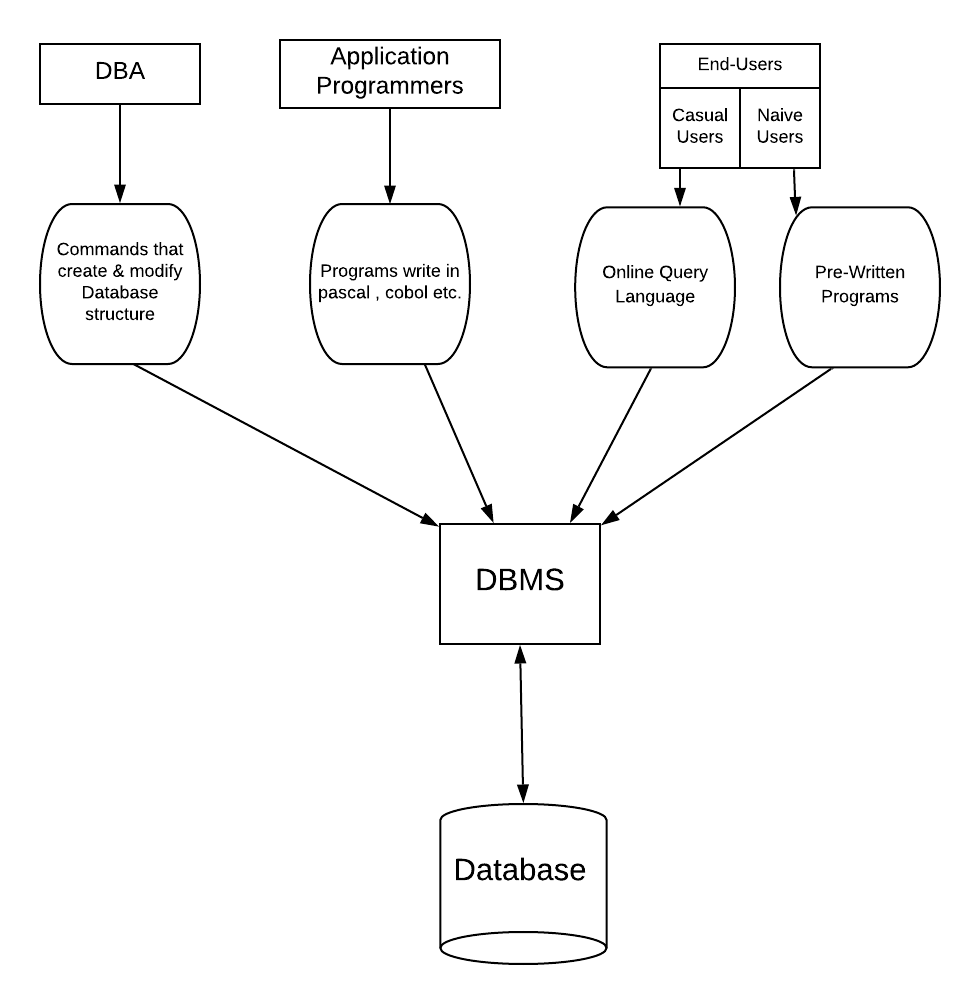What is Database? Advantages & Disadvantages of Database System
Database System: A database is a collection of related information stored so that it is available to many users for different purposes. The content of the database is obtained by combining data from all the different sources in an organization. So that data are available to all users & redundant data can be eliminated or at least minimized.
Components of Database System
A database involves four major components
-
Data
The data stored in the system is partitioned into one or more database.
-
Hardware
The hardware consists of the secondary storage devices such as desks, drums etc on which the database resides.
-
Software
Between the hardware & the users there is a layer of software, usually called the database management system or DBMS.
-
Users
There are three classes of user
- Application Programmer
- End Users
Casual Users
Naïve Users
- Database Administrator

Advantages of database/ Objectives of Database System
- Minimum Redundancy
Redundancy means duplication. The database system has minimal redundancy.
- Inconsistency to be avoided
This is actually part of a redundancy. In an organization, two entries have been made for one record say Roll No 201 is repeated two times. This will cause inconsistency if we update one & leave another.
- Sharing
Means all users have access to the same database.
- Privacy
Privacy generally determines the rights of individuals to access the data.
- Security
Database security may be defined as the protection of data against accidental or intentional disclosures.
- Integrated
By integrated we actually mean unification of several files into one file.
- Data Migration
The process of adjusting the storage of data to suit its popularity rating is called data migration.
Disadvantages of Database System
- High cost of DBMS
- High hardware cost because of additional memory & processing power.
- Conversion cost.
- Programming cost.
- Complex
- Backup & recovery are more difficult.
- Integration
Means failure on one component of an integrated system can stop the entire system.
Hope you liked this article. Keep visiting Mentor Way for more articles like this.



